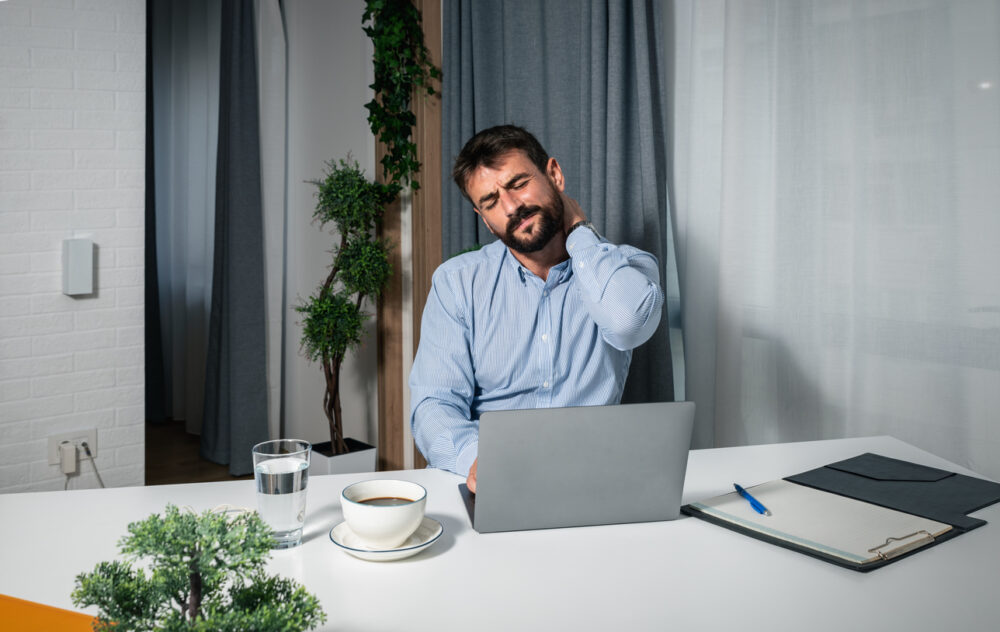There’s nothing wrong with you—there’s something wrong with the grind.

“Self-care” gets marketed like a cure-all: light a candle, take a bath, feel better. But beneath the skincare and sleepy time tea is something deeper—people are exhausted, not because they’re lazy or unmotivated, but because they’re navigating a system that runs on burnout. Hustle culture didn’t just become trendy. It became expected. And when work, side gigs, parenting, and survival all blur together, the result isn’t just stress. It’s collapse.
What we call self-care is often just basic recovery. It’s people trying to claw back a little sanity from jobs that bleed into evenings, housing costs that demand three incomes, and expectations that never stop shifting. These moments of pause aren’t indulgent. They’re essential. And they’re not a lifestyle trend—they’re a quiet rebellion against a system that was never built for human wellbeing.
1. Feeling “lazy” makes sense when burnout is the baseline.

On Medium, Harris Sockel writes that what we often label as laziness is usually the body’s way of signaling exhaustion and a need for real rest. More often, it’s a body begging for a break. When work never really ends, even free time feels like pressure. That’s not laziness. It’s depletion.
Productivity culture rewards output, not balance. The to-do list resets daily, and people are left chasing a finish line that never appears. Eventually, the brain stops cooperating. Focus disappears. Energy flatlines. What looks like procrastination is often just the nervous system waving a white flag. Resting doesn’t mean someone’s not trying. It means they’ve been trying too hard for too long.
2. Chronic stress rewires the brain—and not in a good way.

The hustle doesn’t build resilience. It slowly breaks the systems that help people regulate emotion, decision-making, and energy. Long-term stress changes the brain’s structure, keeping it on high alert even when there’s no real danger.
Cortisol, the stress hormone, is meant to spike during emergencies—not during email replies or commutes. But in a culture that never slows down, it stays elevated. According to the Mayo Clinic, prolonged activation of the stress response system and elevated cortisol levels can impair sleep, concentration, memory, and mood—raising the risk of anxiety, depression, and other health issues. This isn’t just burnout. It’s a biological response to sustained pressure. What gets labeled as poor time management or “not being tough enough” is often the direct result of a brain trying to survive a system that never lets it reset.
3. Of course you’re tired when your life runs like an open tab.

People often say they’re tired like it’s a personal mystery. But the reasons are everywhere. Long hours, emotional labor, unpredictable income, social media overload, and the expectation to always be available—it adds up.
This isn’t just physical tiredness. It’s cognitive fatigue, decision fatigue, and emotional depletion rolled into one. In an article for Upworthy, Annie Reneau shares psychologist Naomi Holdt’s view that widespread exhaustion stems from prolonged stress and pressure to keep up in every area of life, leading to deep mental and emotional fatigue.
When the nervous system never gets to power down, sleep doesn’t feel restful and breaks don’t feel restorative. It’s not a failure of effort. It’s a completely natural response to a system that constantly asks for more than it gives. Anyone would be tired inside that equation.
4. Boundaries matter more when the world pretends they don’t exist.

It’s easy to talk about work-life balance. But holding boundaries in a culture that treats constant availability as a virtue is something else entirely. Messages come in at midnight. Meetings spill over into personal time. Even hobbies get turned into monetized side hustles. There’s always pressure to be reachable, responsive, and productive, no matter what hour it is.
Without real limits, rest gets bulldozed. Saying no isn’t about being difficult—it’s often the only way to stay afloat. But that refusal can come with consequences. Some workplaces punish it. Some families guilt-trip it. So people keep showing up, even when they’re running on fumes. Eventually, the line between choice and obligation disappears. Boundaries aren’t about controlling others. They’re about protecting yourself from systems that never hit pause. And for many, they’re not just helpful—they’re essential for survival.
5. Rest doesn’t work when fear follows you into it.

A nap, a vacation, even a single quiet night—these should be enough to recharge. But for many people, rest doesn’t feel safe. The fear of falling behind creeps into every pause. Even sleep gets interrupted by thoughts of unread emails or bills waiting on the counter.
When the body is still but the mind stays in survival mode, rest can’t do its job. Instead of recovery, people get more frustration. They wonder why the tired feeling never lifts. But rest only heals when people trust that things won’t collapse without their constant effort. In a system built on urgency, that kind of trust is hard to find.
6. Self-care routines can’t undo systemic exhaustion.

People are doing everything they’re told to do: journaling, meditating, cutting sugar, logging out. And yet, they still wake up wrecked. Burnout isn’t always a personal issue. Often, it’s the natural outcome of surviving a system that pushes people past their limits.
Self-care helps, but it was never meant to hold everything together. It’s one tool, not a full repair kit. When jobs are unstable, rent is too high, and healthcare is out of reach, a ten-minute meditation won’t fix the fatigue. That doesn’t make self-care meaningless.
It just makes it insufficient. It’s asking one hour of yoga to undo years of pressure, debt, and overwork. What people actually need is time, security, and space to recover without needing permission to do it. Self-care works best when it complements a stable life, not when it has to rescue people from one.
7. Guilt keeps stealing the breaks you already earned.

Even when time opens up, guilt creeps in. There’s always something unfinished, something someone else is doing better, or something that makes a break feel undeserved. Rest has become something people feel they must explain.
Instead of recharging, they end up scrolling or fidgeting, unable to fully relax. The pressure to earn rest doesn’t fade just because the calendar says free time. It lingers in the background, turning every pause into a negotiation. That’s not rest—it’s tension disguised as stillness. And over time, it drains people just as much as movement does. Breaks are supposed to restore. But in a culture that ties value to output, it’s hard to stop working without carrying the weight of guilt with you.
8. The grind keeps lying about what comes next.

People convince themselves that things will slow down after this week, after this deadline, after this next big push. But the finish line keeps disappearing. It’s never just one more project. It’s always another.
Grind culture feeds on this loop. It promises that the reward is right around the corner, but the goalposts keep shifting. Most people aren’t stuck because they lack ambition. They’re stuck because they believe things will ease up soon.
The cycle keeps them running toward a break that never appears. Even when they accomplish something big, the pause is brief. Then the pressure kicks back in. If that relief hasn’t come by now, it probably isn’t coming. Waiting for rest to appear on its own only leads to more waiting. At some point, the loop has to be broken on purpose.
9. No one thrives when every day feels like damage control.

There’s nothing empowering about constantly pushing through unmet needs. When housing feels temporary, healthcare is inaccessible, and income barely stretches to cover the basics, people stop recovering. They start bracing.
Survival mode doesn’t leave much room for restoration. Sleep gets shallow. Focus slips. Motivation evaporates. The nervous system doesn’t know what to relax into, because nothing feels predictable. People are told to just work harder or think more positively, but that advice misses the point entirely. No one is at their best when they’re worried about whether they can afford food, childcare, or a trip to the doctor. This isn’t a matter of mindset. It’s about what life demands before people even get to rest. Burnout isn’t always from overworking—it’s often from working hard without the support that makes rest possible in the first place.
10. Healing should not feel like a luxury.

Therapy, rest, boundaries, and recovery shouldn’t feel like privileges. But for a lot of people, they do. When basic needs aren’t met, healing starts to look like a wishlist instead of a reality. It becomes something to schedule “after things settle down,” even though that calm never really arrives.
Healing doesn’t require perfection. But it does require space, resources, and time that many don’t have. That doesn’t mean they’re failing at self-care. It means the bar for survival has been set too high. People can’t recover in the same environment that caused the damage. They need more than advice. They need systems that don’t burn them out in the first place. Real healing starts when people stop trying to fix themselves and start asking why they needed fixing at all.
11. Resting on purpose might be the most powerful thing you do.

In a culture built on constant output, rest becomes an act of defiance. It pushes back against the idea that value is tied to productivity. That worth is measured in busyness. That success is earned by being exhausted.
Taking a break doesn’t mean someone is unmotivated. It means they recognize what their body needs. And that awareness is powerful. It interrupts the cycle that says more is always better. Rest isn’t about quitting. It’s about sustaining. It’s about choosing to live fully instead of operating in survival mode. The world may not make rest easy, but that’s what makes it matter even more. Choosing to stop, even briefly, is one way people reclaim their energy, their boundaries, and their humanity.